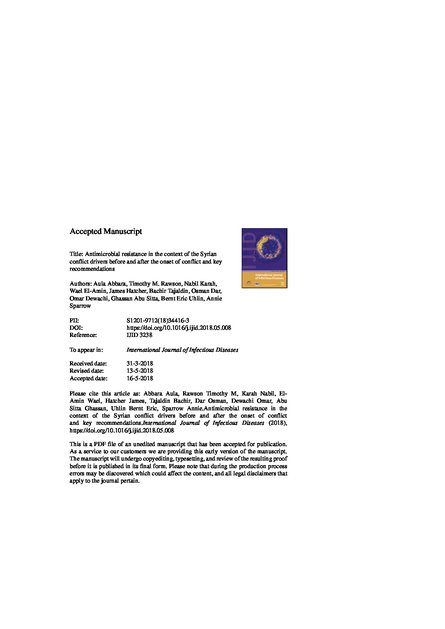
Current evidence describing antimicrobial resistance (AMR) in the context of the Syrian conflict is of poor quality and sparse in nature. In this paper we explore and report the major drivers of AMR that were present in Syria pre-conflict and those that have emerged since its onset in March 2011. Drivers which existed before the conflict included a lack of enforcement of existing legislation to regulate over the counter antibiotics and notification of communicable diseases. This contributed to a number of drivers of AMR after the onset of conflict which were also compounded by the exodus of trained staff, the increase in overcrowding and unsanitary conditions, the increase in injuries and economic sanctions limiting the availability of required laboratory medical materials and equipment. Addressing AMR in this context requires pragmatic, multifaceted action at local, regional and international level to detect and manage potentially high rates of multi-drug resistant infections. Priorities are:
- the development of a competent surveillance system for hospital-acquired infections,
- antimicrobial stewardship, and
- creation of cost-effective and implementable infection control policies.
However, it is only with addressing the conflict and immediate cessation of the targeting of health facilities that the rehabilitation of the health system, which is key to addressing AMR in this context, can progress.